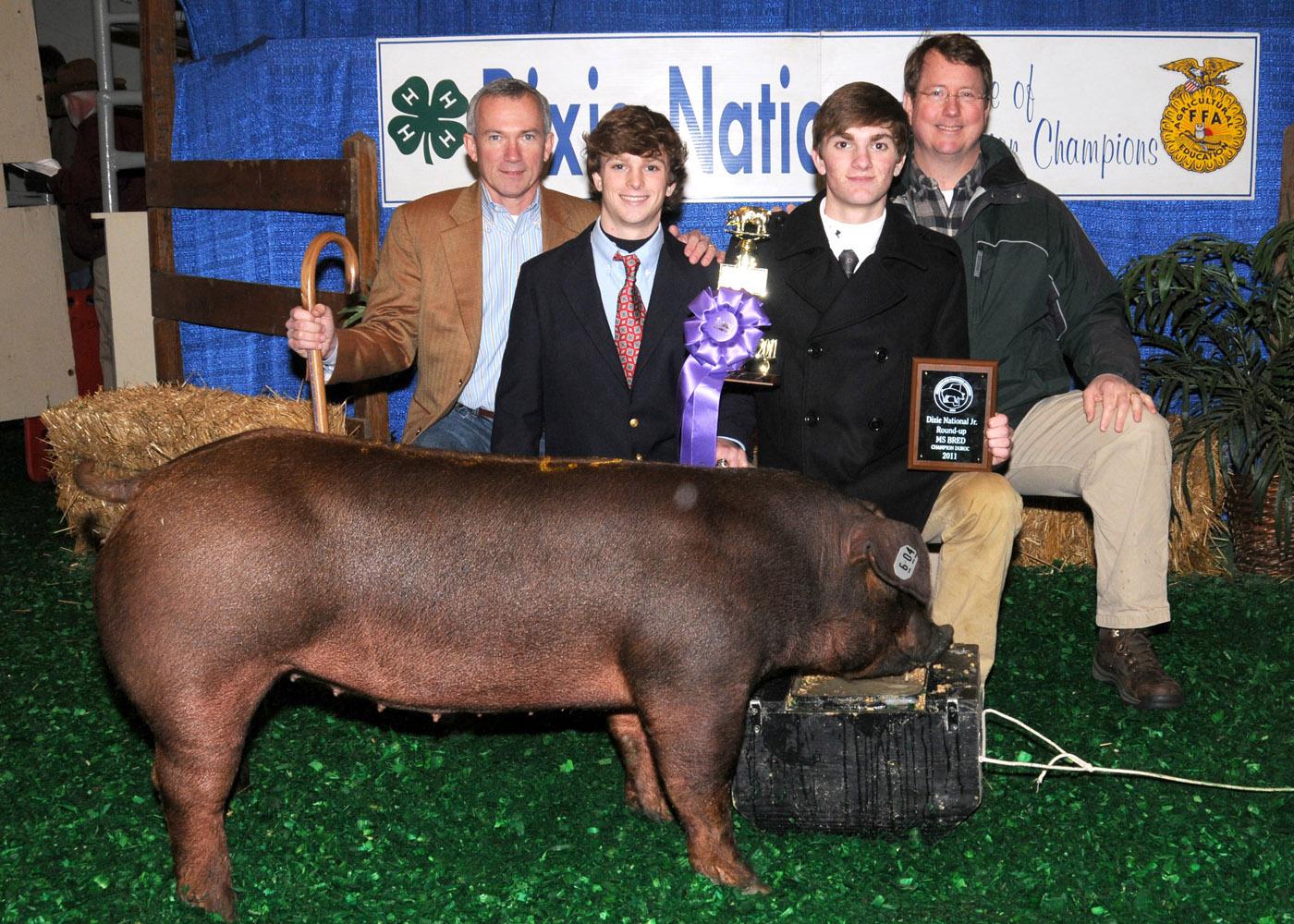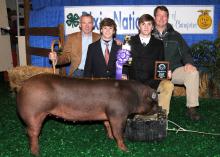Information Possibly Outdated
The information presented on this page was originally released on February 17, 2011. It may not be outdated, but please search our site for more current information. If you plan to quote or reference this information in a publication, please check with the Extension specialist or author before proceeding.
2011 charity runs deep among champion buyers
MISSISSIPPI STATE -- Buyers braved the elements to support young livestock exhibitors and several charity organizations at the Dixie National Sale of Junior Champions on Feb. 10.
Snow, ice and bitter cold temperatures often occur the day of this annual event. Fortunately, those conditions are less common than the generous donors, who come every February to the event on the Thursday after the junior livestock shows conclude.
Total sales for this year’s 43 market animals exceeded a quarter of a million dollars. This figure included $92,554 for the steers, $84,347 for the hogs, $55,112 for the lambs and $25,150 for the goats. 4-H and FFA exhibitors receive money for their animals, but several charities benefit from the animals as well.
“Buyers often donate the animals they purchase to charities that can use the meat, such as Jackson’s Stewpot or private children’s homes,” said Dean Jousan, Mississippi State University 4-H livestock specialist.
This year, some buyers made a special gesture to support a family with ties to the 4-H livestock projects. They donated the meat from an animal to Elwanda Shook, a longtime office manager for the shows and the Sale of Champions, whose husband passed away on Feb. 6. Sale organizers also dedicated the 2011 sale to the Leroy Shook family.
“Livestock shows and projects are family events, both literally and figuratively. Each family feels a personal connection with everyone involved in the shows -- including the Extension agents and others who work the shows,” Jousan said.
2011 buyer Kipp Brown has been involved in the program for most of the sale’s 42-year history. He and other buyers combined their efforts to purchase a champion animal again this year.
“When Leroy became terminally ill, neighbors helped him sell his dairy cattle. We heard the neighbors would not take money for their efforts, and some buyers thought the meat from a sale animal would be a way we could help the Shook family thank them,” Brown said.
That thoughtful attitude is what charities appreciate.
Rory Lee, executive director of The Baptist Children’s Village in Clinton, said the donations of meat from the Dixie National Sale of Junior Champions mean a great deal to his organization each year.
“The meat is divided among our seven campuses throughout the state and provides nourishing meals for the children in our care,” Lee said. “The donations are also meaningful because the animals were raised by youngsters who learned a great deal in the process and because the donors who purchased the animals were thinking of ways to help our children as well as those who raised the animals.”
Jousan said the sale has generated in excess of $4.5 million since the first sale in 1970, which included 22 champions that sold for a total of $7,621.
“It takes a lot of hard work, time and family resources to make it to the Sale of Champions,” Jousan said. “The Sales of Champions committee also has worked hard to make scholarships available for exhibitors whose animals did not qualify for the sale.”
Since 1993, more than $400,000 has been awarded in scholarships. This year, five premier exhibitors in beef, dairy, goats, sheep and swine received $2,000 each, 25 exhibitors who were graduating seniors in high school received $1,500 each, and three exhibitors of supreme animals received $1,000 each.






